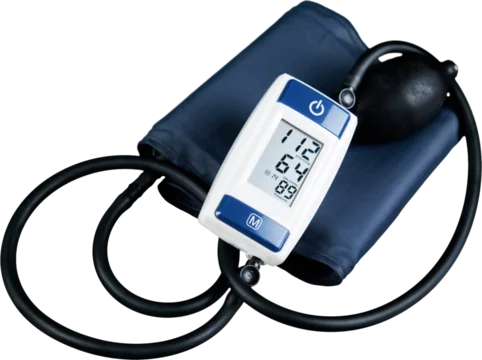Hypertension (high blood pressure) is sometimes referred to as the “silent killer” because it can damage your body without causing any symptoms for many years. To manage this condition, you must regularly monitor your blood pressure. Ambulatory Blood Pressure Monitoring is a useful tool for this, as it provides continuous and accurate readings throughout the day. This article will explain what Ambulatory blood pressure monitoring is, how it works, and why its role is so important in managing hypertension. Continue reading to learn more about Ambulatory Blood Pressure Monitor.
Understanding Ambulatory Blood Pressure Monitoring (ABPM).
ABPM measures blood pressure regularly, typically over 24 hours. This allows for a better understanding of a person’s blood pressure patterns during the day and at night. The portable device automatically records and inflates your blood pressure at every predefined interval, usually every 15-30 minutes during the day. The device is small and comfortable, so people can continue with their daily routines while wearing it.
Ambulatory Blood Pressure Monitoring: Benefits

Accurate Data: The ABPM gives you a comprehensive and accurate picture of your blood pressure. This is more accurate than the traditional measurements in clinics. Blood pressure can fluctuate throughout the day depending on factors such as stress, sleep, and physical activity. ABPM records these fluctuations and provides a complete picture of your health. Consult your healthcare provider for more information on the Ambulatory blood pressure monitor.
Identification White Coat Hypertension Certain individuals may experience elevated blood pressure in a clinical setting as a result of anxiety or stress. This phenomenon is known as “white-coat hypertension.” ABPM can help distinguish between true hypertension, and this temporary rise, ensuring treatment decisions are based upon accurate information.
Detection of Nocturnal hypertension Nighttime Hypertension is an important risk factor for cardiovascular events. ABPM detects whether your blood pressure is elevated at night and allows your healthcare provider to tailor your treatment accordingly.
Customized treatment: By allowing healthcare professionals to customize your treatment plan, ABPM provides a 24-hour blood pressure profile. This can result in a more effective treatment of hypertension and reduce the risk of complications.
Assessment Medication Effectiveness: The ABPM monitors the effectiveness of prescribed medication by monitoring blood pressure over a long period. Adjustments can be made if a medication doesn’t work as expected.
Who should consider ABPM? Ambulatory Blood Pressure Monitor: More information

ABPM can be recommended to individuals who fit into one of the following categories.
- White coat hypertension is suspected in those with the condition.
- People with irregular blood pressure patterns.
- People with high blood pressure at night.
- Patients who require close monitoring of blood pressure changes.
- Patients undergoing medication adjustment for hypertension.
Consult your doctor to find out if ABPM will work for you.
Conclusion
Ambulatory blood pressure monitoring is an effective tool for the treatment of hypertension. It helps healthcare professionals make informed treatment decisions and lifestyle changes by providing accurate and continuous data. Whether you’ve been diagnosed with high blood pressure or you suspect that you might have it, ABPM is a valuable tool to protect your cardiovascular health. Hypertension is manageable. With the right tools, guidance, and support, you can reduce your blood pressure risks and take control. Consult your healthcare provider for more information on the Ambulatory blood pressure monitor.












